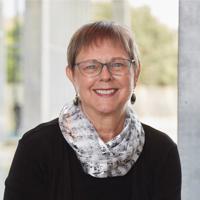Music Reading for Students with Learning Disabilities
Thursday 22nd February 2024, 5:00 PM - 7:00 PM (London Time)
There are music students in private studios and school classrooms who are not readily learning to read music through standard instruction. Research into dyslexia gives us insight and guidance to how students with learning disabilities can be taught in a way that effectively builds the neural pathways for literacy. Using the style of teaching first created by the dyslexia researchers Stillman and Gillingham, Multisensory Structured Language (MSL), we can redesign our approach to teaching music reading that follows a strict, logical and effective order to build the neural pathways that are necessary for students with learning disabilities to learn.
Music reading is most often taught as a secondary skill to performing skills, and therefore does not follow its own logical, systematic approach. This negatively effects students who are not neurologically wired to learn through our traditional standard instruction. Applying the principles of MSL instruction to music reading instruction reorganises the steps to learning in surprising and effective ways. Adapting this scientifically researched approach to music reading makes it possible for struggling students to have access to music literacy.
This course will review the research surrounding certain learning disabilities such as dyslexia, dyscalculia and ADHD, and the research-based solutions that have been found to work successfully. We will examine current methods of music reading pedagogy, and then compare that to systems specifically designed to accommodate students with learning disabilities.
Dr Elizabeth Morrow
Dr Elizabeth Morrow, Professor Emerita, was awarded the degree Doctor of Musical Arts in Cello Performance from the University of Southern California. As a recitalist, she has concertized extensively in Europe and North America. An award-winning pedagogue, Dr Morrow has been an active presenter for the American String Teachers Association and Texas Music Educators Conference.

Attend this course for as little as £22 as part of the Voice Professional Training CPD Award Scheme.
Learn MoreSorry, this is an archived short course...
We have plenty of upcoming short courses coming soon. See details of some of them below or look at the full list of short courses.

Thursday 19th February 2026
1:00 PM - 2:30 PM
Thursday 26th February 2026
1:00 PM - 2:30 PM
(London Time)
Performing Pain: Vocal Health in Emotional Roles!

Louisa Morgan
How connected are acted emotions to our real-life emotions? Are they expressed differently? Do they feel different in the body? This 2-part course with Louisa Morgan looks at the potential impact of acted emotion on vocal health, why we should consider it as voice practitioners, and how to care for our performers needing to work with it.


Tuesday 24th February 2026
5:00 PM - 7:00 PM
(London Time)
Incorporating CBT principles within vocal health and voice care

Dr Luke Aldridge-Waddon
Join Dr Luke Waddon as he introduces the principles and techniques within cognitive-behavioural therapy (CBT) in relation to the voice and voice care. He will discuss psychological factors relevant to the development and maintenance of voice disorders and how these might be approached from a cognitive-behavioural perspective. He will describe theoretical concepts and therapeutic components often used within CBT and consider how these might be applied when working with voice users.


Tuesday 3rd March 2026
5:00 PM - 7:00 PM
(London Time)
Sex differences in VOICE!

Dr Richard Lissemore
This two-hour workshop, led by performer, articulatory phoneticist, and voice physiologist, Dr. Richard Lissemore, will examine in detail the role that biological sex plays in the perception and pedagogy of singing voices. We'll consider how parameters such as anatomy, physiology, articulation, resonance, and radiated acoustics influence the perceptions and pedagogical decision-making of singing teachers.
